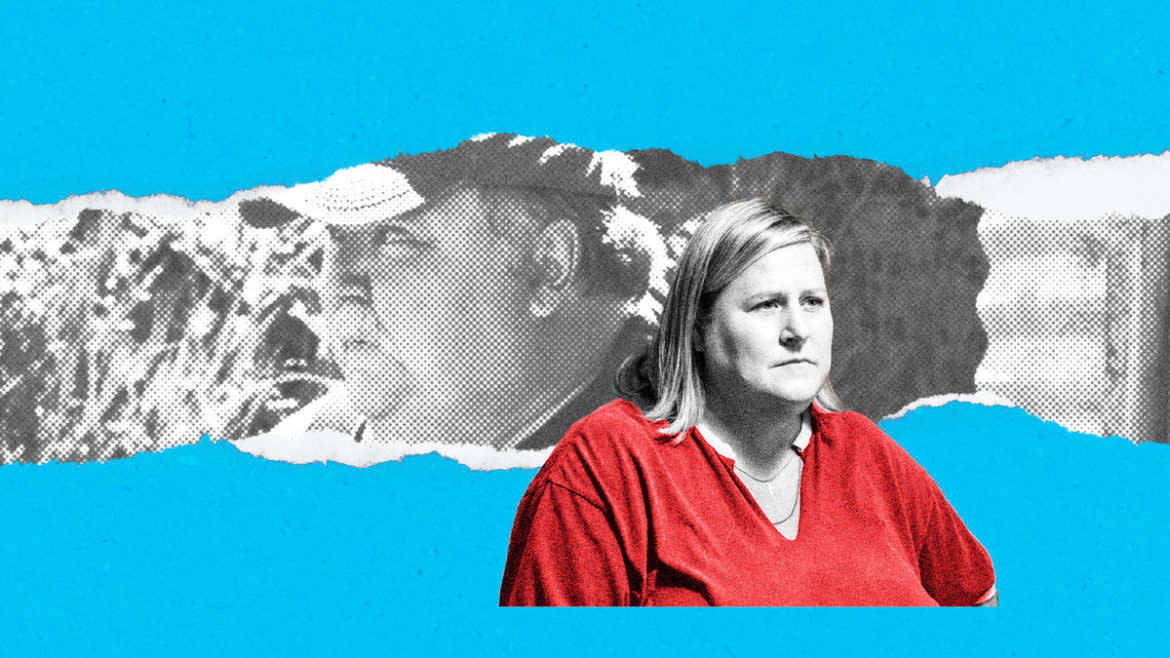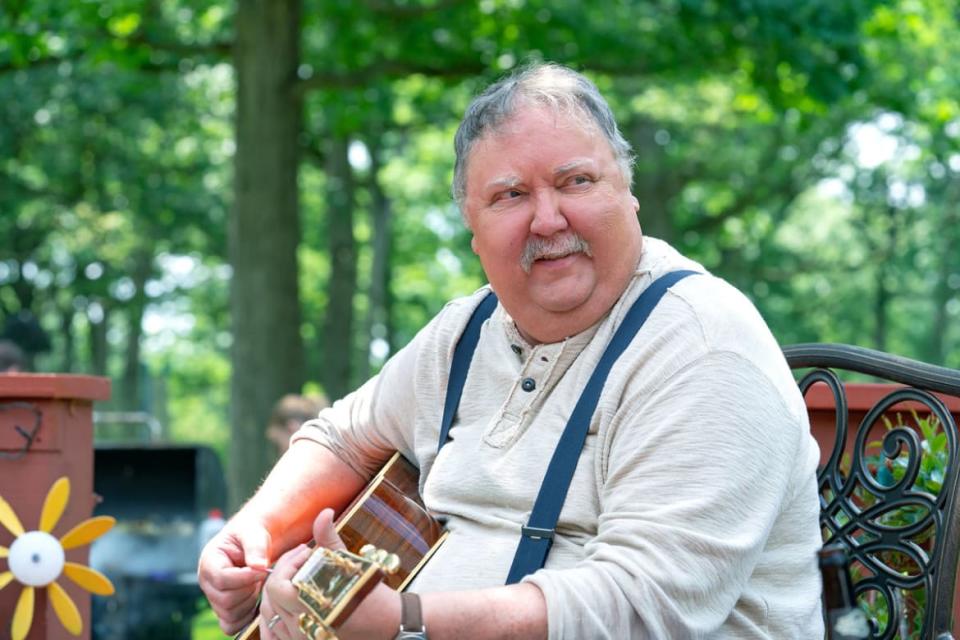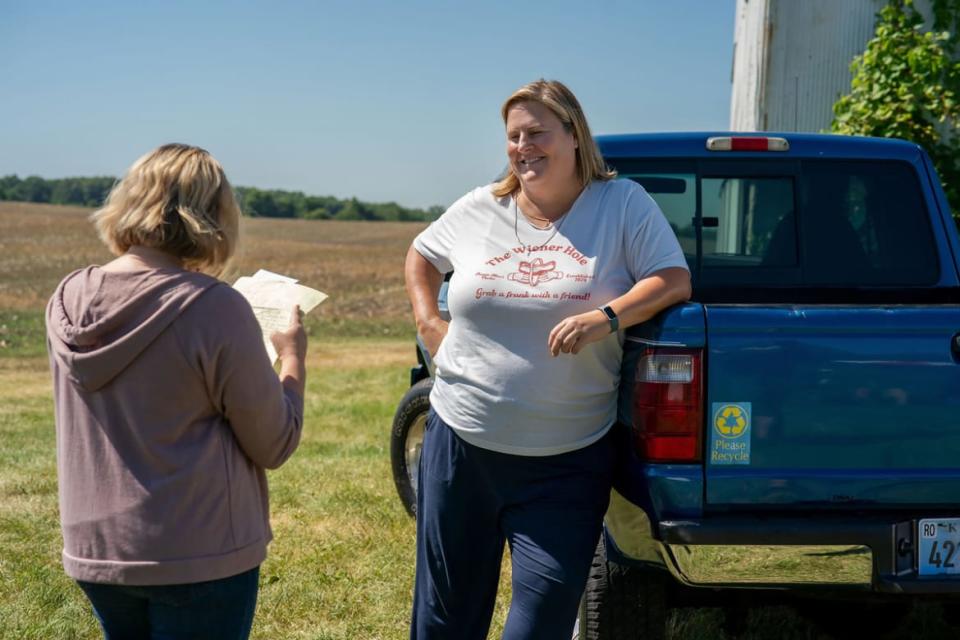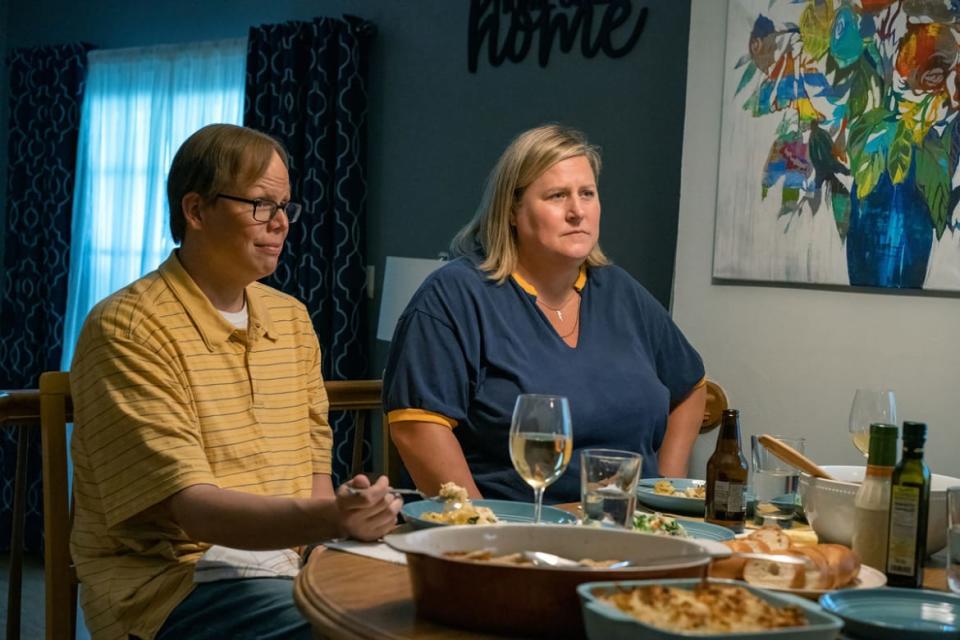‘Somebody Somewhere’: Has a TV Show Ever Portrayed Grief This Powerfully Before?

HBO’s Somebody Somewhere may be a show about small-town life, but watching it often feels colossal. Amidst the modest shops on Main Street, and the quiet parks where people still greet each other in passing (instead of pretending they don’t exist), there is a tapestry of complex feelings draped over the series’ depiction of Manhattan, Kansas (which is actually the humble suburbs of Chicago).
Somebody Somewhere is masterful at portraying how the languid pace of a provincial life opens people up to the reality of their emotions. The only noise that exists to drown out thoughts is that of a few crickets and bluebirds—and they’re not very loud at all.
That sounds a tad dramatic for a show that is mostly a comedy. But in Somebody Somewhere’s terrific pilot episode alone, it is irrefutable: This series understands how living in—and especially returning to—a small town, can weigh heavy on the heart.
Although each episode of the show is its own compact rollercoaster of emotions, neatly tucked into a half-hour, Somebody Somewhere isn’t afraid to sit and stew in those feelings. The show has particularly succeeded in its study of grief and how its hardship follows us through life whether we like it or not, often being dredged up in peculiar moments. How the show studies these junctures and the ways we try to process hitting those walls at unexpected times is more than simply relatable. It’s healing.
No TV Show Deserves to Be a Hit More Than ‘Somebody Somewhere’
Sunday night’s Season 2 premiere proved that Somebody Somewhere’s ability to capture this was no fluke.
In the show’s first season, Sam (Bridget Everett) moves back to Kansas to take care of her sick sister, Holly. She is left staring down a lifetime of regrets, which only catch up with her once Holly passes. Sam’s reason for being in her hometown was gone. In its place are fond memories, trinkets of sentimental value, and an internal impasse that leaves Sam struggling to salvage the broken pieces of her career and relationships.
Over the course of seven episodes, Sam figures out how to start moving forward, thanks to the support of her new friend, Joel (Jeff Hiller), and her stoic father, Ed (Mike Hagerty), who seems to be the only other member of Sam’s family who allowed their grief over Holly’s death to be plainly visible.
A few weeks before Season 2 was scheduled to begin filming, news broke that Hagerty had died, following complications from a seizure. “I loved Mike the instant I met him,” Everett wrote in a tribute on Instagram. “He was so special. Warm, funny, never met a stranger. We are devastated he has passed. Mike was adored by the entire cast and crew of Somebody Somewhere.”
The show’s writers have written Hagerty out of the second season, but his presence is still felt. Somebody Somewhere explains Ed’s absence by having the character leave Kansas to visit his brother, following an increasingly strained relationship with his beloved wife, Mary Jo, whose alcoholism worsened in Season 1. When Mary Jo has a stroke, Ed is left unable to care for her, and she is placed in an assisted living home.
Instead of approaching Hagerty’s loss as an obstacle, Somebody Somewhere addresses it like a death itself, honoring the actor’s memory by letting the anguish felt by the show’s cast and crew envelop the season. It’s a beautiful nod to Hagerty’s impact on the series, without pouring more pain onto a show that has so dexterously managed to avoid becoming melodramatic.

In the Season 2 premiere, this is brilliantly portrayed in a scene where Sam is suddenly moved by her father’s absence. Now that she and her sister, Tricia, are going to be leasing out their family’s farmland, Sam has to clean up the barn to make it presentable to potential renters. Over the years, the barn had become less of a practical place for storage and more of a junk shed. Organizing all of its contents would be daunting as it is, but the task is made more difficult by what it means to Sam and her family.
Sam starts by trying to drag out an old piece of plastic garbage, until she realizes it doesn’t really have a home. “I’ve got nowhere to put it,” she says, sighing and kicking it to the side, before resigning herself to a whole day in the barn. She tosses old weather vanes, maneuvers 80-foot-long hoses, and drags old, rusty tractor chairs to her truck’s pickup bed. Sam laughs here, and nods there, realizing her dad had his own system for keeping track of everything. The barn, and the farm it rests on, are all marked by his presence.
After a good bit of work, Sam sits down to collect herself and dials Joel, who immediately senses the heartache in her voice. “It just feels really weird to be here with all of his stuff, you know?” Sam says. “I wanted him to go, and I pushed him to go, and I’m glad he went. Because I know that he couldn’t have cleaned out this barn, it would’ve broken his heart.” Everett follows this line with a gorgeously performed gut punch: “I didn’t know it would break mine.”

As the tears begin to form in Everett’s eyes, the fourth wall comes close to shattering. This no longer feels like a character or fiction—it’s staggeringly real. “Just sitting here, Joel, and he…he’s everywhere,” Sam says. The way Everett says “everywhere” is exceptionally effective, like each syllable is meant to land on a different corner of the barn, next to the lingering memories of Ed. “Every inch of this place is him, you know? He loved this place. And now I just feel like I’m packing up his whole life.”
Joel offers to come out to the barn to help, but Sam asks instead that he just stay on the phone with her for a minute. Together, they sit in silence, with nothing but a cellular connection between them. Prior to Joel’s arrival in her life, Sam had no capacity for being able to process grief, and certainly not this effectively. Though cleaning the barn has proven a more emotionally difficult task than she anticipated, it’s because of Joel that Sam is able to let these feelings move through her, instead of burying them under humor—or worse, pushing them down entirely.
Anyone who has had to sort through a loved one’s possessions after they’re gone understands that it is a uniquely beautiful experience. We get to admire their lives, sprawled out before us, each item with its own unique story. That’s what makes it so unbelievably difficult, too. The presence of those dearest to us is never more acutely felt than when we step foot into their history. It’s delicate. Everything, even the junk, feels precious.

This scene is the perfect distillation of what makes Somebody Somewhere flourish. The show rolls these robust feelings into compact, 30-minute ruminations on life, where seemingly insignificant moments are treated with the care and understanding they’re not always afforded in other scripted series. Everett has quietly become one of television’s most spellbinding stars, and her absorbing work in this sequence is not just awards-worthy, it’s important.
The sorrow tied to loss is so layered, and often so incredibly difficult to talk about, that having as many honest depictions of its countless forms is crucial. In these representations, we have the opportunity to catch a reflection of our own experiences. The pain of grief is lonely, and isolating. And, thanks to this scene, those who might not have a Joel to their Sam, still have Somebody Somewhere.
Liked this review? Sign up to get our weekly See Skip newsletter every Tuesday and find out what new shows and movies are worth watching, and which aren’t.
Get the Daily Beast's biggest scoops and scandals delivered right to your inbox. Sign up now.
Stay informed and gain unlimited access to the Daily Beast's unmatched reporting. Subscribe now.

 Yahoo News
Yahoo News 
